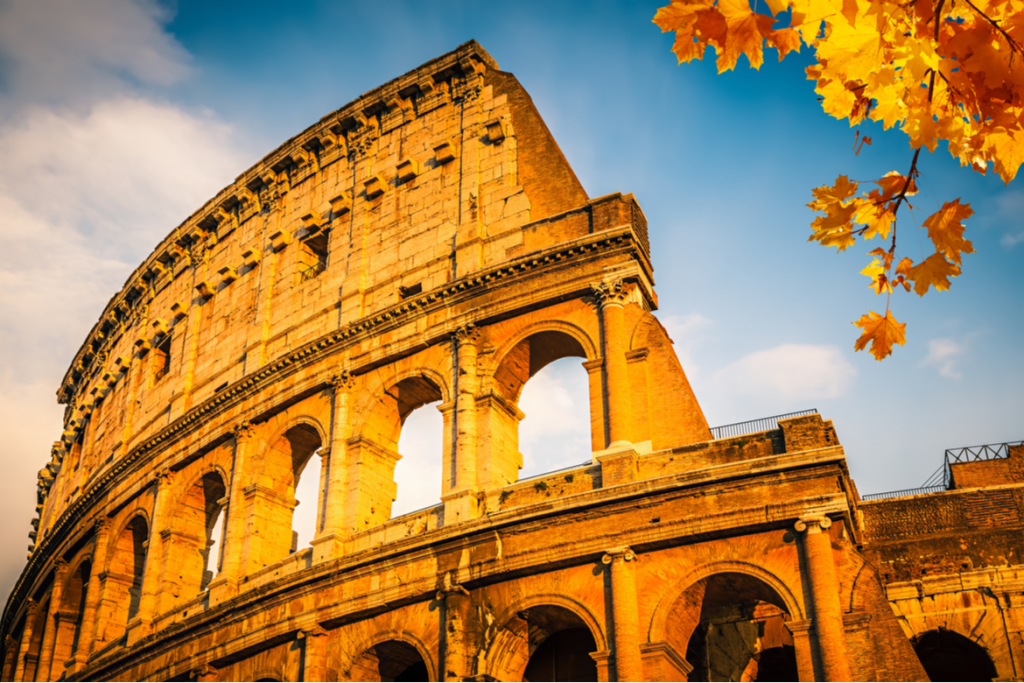When in Rome…

Where is God? Mankind has pondered this question for an eternity. Interestingly, our Rabbis answered, “He is in the great city of Rome” (Jerusalem Talmud, Ta’anit 81). This answer seems very odd. Rome was a city rife with idol worship and immorality. In fact, our Rabbis were alluding to a particular existence of God that is hidden and unfathomable to us humans.
Pirkey Avot tells us that God created the world with Ten Utterances (Avot 5:1). But if we count from the beginning of Genesis, we see only nine acts of creation that begin, “And God said…” Rebbe Nachman points us to the very first verse of the Torah: “In the beginning God created Heaven and earth.” Since this first act of creation does not record God as saying anything, it is called the Hidden Utterance. This Hidden Utterance is so holy and elevated that all nine of the other utterances of creation receive their vitality from it (Likutey Moharan II, 12).
This Hidden Utterance alludes to the existence of God in Rome. There are some places that seem to be utterly devoid of Godliness. These places are so bleak that there is even room to deny God’s existence outright. Yet doesn’t God also sustain these places? This is a great paradox and something that we cannot properly fathom. Rebbe Nachman explains that precisely because these places run counter to God’s honor, they cannot be sustained through the regular, revealed channels. Instead, God sustains them through the Hidden Utterance, which is concealed in this world.
There is a great lesson in all of this. Wherever a person may fall – whether he doubts the existence of God or faces temptation and sins – that place itself is being sustained by God at the level of the Hidden Utterance. Even though it may seem as though God isn’t there, if you cry out, “Where are you, God? How can I seek You out and connect to You?” you show that God does exist, even when all else seems to say the opposite. There is Godliness that is sustaining you and giving you the vitality to fall in the first place. You have now transformed your descent into an ascent, showing that God’s honor is ever-present, even when it is completely obscured.
Had the Jews not sinned and made the golden calf, they would have merited to enter the Land of Israel immediately. The Land of Israel is the ultimate place of revealed holiness and Divine perceptions. Instead, the Jews fell into a concealed state of Godliness. But they were given the key to get out: the Mishkan. God commanded them to build it out of “gold, silver and copper” (Exodus 25:3). These were the same materials used in the creation of the golden calf. God gave the Jews the opportunity to take the materials that lead to idol worship and reveal their true source, using them to build a place for the revelation of Godliness.
As they brought the Mishkan along on their journey through the desert, the Jews elevated each of their encampments to a place of awesome holiness, one that assumed the laws of sanctity governing the Holy Temple. However, as soon as they left, their camping ground would revert to its original, unsanctified state.
Life takes all of us to different destinations. Sometimes we find ourselves in Rome. But each of us is a mini Mishkan. We each have the ability, no matter where we travel and no matter how far we fall, to cry out to God. Through this, we can reveal God’s honor and transform even the lowest place into the holiest sanctuary.
Based on Likutey Halakhot, Geviyot Chov MeiYetomim 3:7